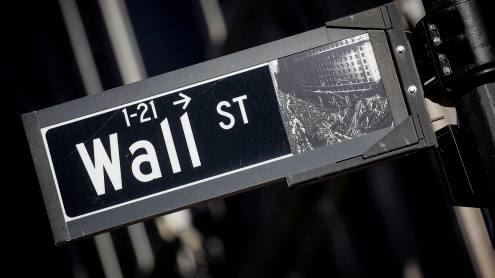On the fiscal side, since 1999 when we reached an agreement with the IMF, the consolidated public sector budget has been showing a primary surplus. It started with around 3% of GDP in 1999 and has been moving higher. The target for 2005 is 4.25%, but the number so far is 5% so we are ahead of target.
As a result of these efforts there was an inversion in the trend for a worsening public-sector debt/GDP ratio, which had peaked at around 62% in the second half of 2002, and has declined gradually to near 50%.
The second pillar of the stabilisation effort is the inflation-targeting monetary regime. We started that also in 1999 but because of several shocks that the Brazilian government faced, particularly in 2002 when there was a foreign exchange shock and the real depreciated about 60%, there was a supply shock and inflation reached 12.5% for 2002 and in May 2003 it reached 17% over the previous 12 months. The central bank applied a very rigorous monetary approach, tightened the policy, and as a result of that, inflation gradually came down; in 2003 it fell to 9.3%, in 2004 it was 7.6%. In 2005 the market consensus is for 5.2% versus a target of 5.1%. The market consensus for the next 12 months is for inflation of 4.8%.
Q But isn’t the currency now overvalued?
A In Brazil because we operate an inflation targeting regime, we don’t have a foreign exchange rate target. What we have is an objective of rebuilding the reserves. The reserves net of IMF loans that had been at $10bn are now at $42bn, which is the highest since the introduction of the free-floating exchange rate.
Q Brazilian companies still complain about the high level of interest rates.
A It’s true real interest rates [in Brazil] are some of the highest in the world but they are trending down… We have to make sure that the reasons for higher interest rates are diminishing. For instance, by reducing the inflation risk premium. From 1999 to 2002 actual inflation was higher than the market consensus. For the years 2003-2005 that unanticipated inflation number fell dramatically. And this year it is getting into negative territory; inflation is actually lower than had been anticipated. If that trend continues, you will see a point when the inflation risk premium will come down and that is going to drive real interest rates lower.
Q What happens if the benign external environment changes?
A We are taking advantage of the benign external environment to strengthen our balance sheet. I’ve already mentioned that we have $42bn in reserves. Two years ago we had a current account deficit of almost 6% of GDP; that moved up to a surplus of 2% of GDP, almost an eight percentage point shift. We had a trade deficit, today we have a $40bn trade surplus; our exports have grown from $55bn three years ago to more than $110bn now. We are basically taking advantage of the benign conditions in order to build our war chest up and make our economy less vulnerable.
Q Does Brazil need a law to preserve central bank independence?
A The current government is honouring its commitments to keeping the central bank independent. In practical terms, there is no need for a law in the sense that no one gives me a call, no one tries to pressure me. A law would not change our day-to-day operations. Having said that, maybe the market thinks that if there is a law for the reasons you’ve described, you never know the future and so on, maybe a part of the risk premium would come down. But that’s hard to calculate.
Q How long will you remain at the central bank?
A I was recently invited by several political parties to join one of them and run for governor of my own state next year but my final decision was not to do that. I decided to stay at the central bank.
Q Is Brazil on course to become investment grade?
A I think we are moving in that direction and it’s only natural that the rating agencies move slower than the market, it’s their nature. I think that as long as we keep a momentum of improving fundamentals we will see that happen eventually.











